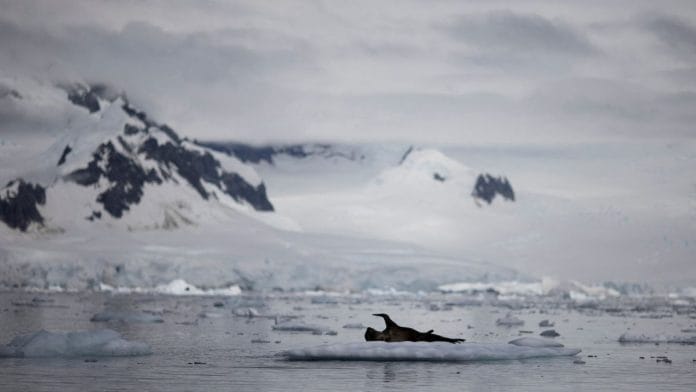New Delhi: India emphasised the preservation of Antarctica’s scientific sanctity at the opening plenary of the 46th Antarctic Treaty Consultative Meeting (ATCM) Tuesday. Delegates also stressed the need for developing accurate predictive models for assessing the impacts of climate change on ice cap melting and restrictions on tourism on the continent.
Shailesh Nayak, director of the National Institute of Advanced Studies, said climate change is a major factor impacting the melting of Antarctic ice caps and rising sea levels in the region.
“The aspirations of the people and their consciousness about Antarctica and climate change should be considered in the governance of Antarctica. The Antarctic Treaty System ensures that it remains as a natural reserve devoted to peace and science,” Nayak said at the ATCM.
India is hosting the 46th ATCM at Kochi in Kerala between 20 and 30 May. Delegates from 56 member countries of the Antarctic Treaty are attending this meeting, which is being organised by the National Centre for Polar and Ocean Research (NCPOR) through the Ministry of Earth Sciences.
India last chaired the Antarctic Treaty meeting way back in 2007 in New Delhi.
Why is Antarctic Treaty significant?
The original Antarctic Treaty was signed in Washington in 1959 by the 12 countries whose scientists had been active in and around Antarctica during the International Geophysical Year of 1957-58. The primary members were Australia, Argentina, Belgium, Chile, France, Japan, New Zealand, Norway, South Africa, the UK, and the former USSR. The treaty came into effect in 1961, and since then, several countries, including India, have joined it.
Currently, there are 56 members.
The treaty made three primary provisions to ensure that the ecology of the region is preserved and scientific experiments continue. The provisions were that Antarctica should be used for peaceful purposes only; freedom of scientific investigations and cooperation towards that end continues; and scientific observations and results be exchanged and made freely available.
India’s presence in Antarctica
At the opening plenary session Tuesday, Earth sciences minister Kiren Rijiju elaborated India’s plan to set up a third observatory, Maitri-2, in Antarctica.
“India’s connection with Antarctica began in 1956 when we introduced an item at the 11th UN General Assembly advocating for peaceful utilisation of Antarctica,” Rijiju said. “We are committed to understanding India’s connection with Antarctica and would advocate for responsible and regulated tourism. As we look at the future, we are excited to announce India’s plan to build a new research station Maitri-2.”
At the Rajya Sabha last year, Rijiju said that the location of the new observatory will be just a few kilometres away from the operational Maitri station.
India currently has two research stations, Maitri and Bharati, in Antarctica. The Maitri station has been hosting researchers since 1989, while Bharati became in 2013. In both these stations, research and investigations in atmospheric, biological, geological and ecological sciences among others are undertaken to understand the polar processes and phenomena.
(Edited by Tony Rai)
Also Read: Climate change-induced heatwaves becoming more likely every April, temps to soar above 40 degrees






